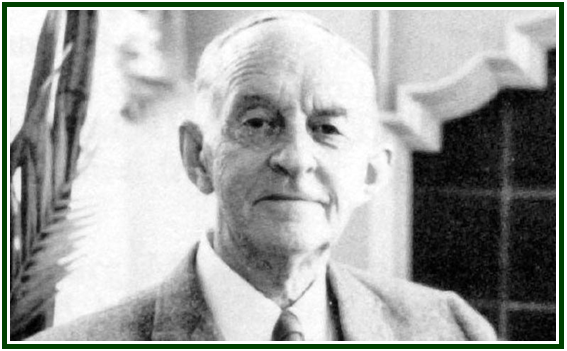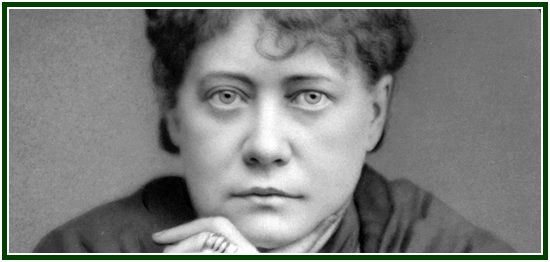
Only Truthfulness and Ethical Principles
Can Establish Mutual Respect Among Men
Boris de Zirkoff

Boris de Zirkoff (1902-1981)
0000000000000000000000000000000000000000000
Editorial Note:
The following article was first published at
THEOSOPHIA magazine, Volume VIII, No. 3,
September-October 1951. In these lines Zirkoff
describes the problem of pseudo-theosophy in the
context of the transition to the next civilization of
brotherhood. He shows that pseudo-theosophy suffers
from a disguised, yet complete, lack of Ethics. Once
one thinks about it, there can be no doubt that the issue
of Ethics is both central and decisive for the present and
future of our mankind. Therefore theosophists must not
look at life always from the point of view of appearances
and politics, which lead people to blindly guide themselves
according to the average of established opinions. One
must look at life and the Path from the point of view of
the teaching and of its ethical principles. This, of course,
may disturb the dead-letter routine of some corporations.
(Carlos Cardoso Aveline)
0000000000000000000000000000000000000000000000000000000
“The ethical lethargy in this century has affected every
facet of life and every school of thought, including the
Theosophical Movement in its organized forms. The latter
fact is perhaps of greater moment to students of Theosophy
than anything else. In the ranks of the present-day
Theosophical Organizations we see the same downfall of
ethical conduct (…..) which characterize the world at large.”
(Boris de Zirkoff)
While world statesmen and politicians are dividing humanity into respective “spheres of influence”, and the scientists of the world are inventing more and more powerful weapons for still greater slaughter, a solution of the one basic problem remains practically ignored.
It is the problem of the appalling lack of ethical integrity – a condition which affects every aspect of our modern life and penetrates into every stratum and level of our civilization.
The Babel of present-day confusion, when analyzed as impartially and objectively as we can, to a very large extent appears to be the result of a total loss of those spiritual and ethical foundations which alone can inspire mutual respect among men.
Current periodicals and newspapers often deplore the obvious fact that organized religion has ceased to be the binding force, as well as the impelling power, to right living; that it is unable to stem the tide of moral disintegration which is sweeping the world of today. And a number of prominent writers and scholars are convinced that no such power exists within the stronghold of modern science either. The bewildering assortment of quasi-occult and metaphysical organizations and cults that thrive in various parts of the world, while presenting to the public some teachings which might be of benefit to them, weave phantastic patterns of “marvelous powers” to be acquired, and leave the noble spiritual ethics of the ages buried under a heap of psychic rubbish. No great regenerative power can be expected to arise from these quarters.
The student of the Ancient Wisdom facing the present confusion of ideas and ideals, witnessing the chaotic conditions of men’s minds, relies primarily upon the innate spiritual forces hidden within the human heart. These may be, and unquestionably are, latent in the majority of cases, but they are there. They constitute the only source of regeneration, and are the only lever powerful enough to produce a permanent change in the condition of men individually and of mankind collectively. The spiritual leaven of the human heart will have to assert itself with the commanding voice of unquestionable spiritual authority and become a dynamic power in the halls of the people, before any vital change can take place in the world of today. No cut and dried book-learning will ever accomplish this change.
The ethical lethargy in this century has affected every facet of life and every school of thought, including the Theosophical Movement in its organized forms. The latter fact is perhaps of greater moment to students of Theosophy than anything else. In the ranks of the present-day Theosophical Organizations we see the same downfall of ethical conduct, the same intellectual confusion, the same questionable methods of procedure, and the same conflicting emotions which characterize the world at large. In spite of high-sounding words on the part of those in power, In spite of ponderous tomes replete with intellectual as well as ethical teachings sufficient to feed generations to come, the Theosophical Movement, as an organized body, while doing much good work in various parts of the world, has none of the qualities and earmarks of a living power bringing regeneration to human hearts and new vital impulses to human minds. It has settled itself long ago into comfortable grooves of thought, lofty in ideals, universal in character, thought-provoking in content, yet just as deadly in their crystallizing influence as any other mental or emotional rut. It is a far cry from the vital, dynamic, soul-stirring power it used to be before the spirit of its birth, and the original “daimon” of its inspiration, fled from the much abused form with feet of clay.
The ethical regeneration of mankind, in this our twentieth century [1] of scientific miracles and moral decay, will have to come from within the inner forum of the human heart, and be the result of a cry from the depths of the human soul, a cry for enduring realities and a yearning for harmony and good will among men. The student of the Ancient Wisdom is looking forward to the day when a movement shall have arisen on broad, international lines, and on a scale transcending political barriers or national boundaries, which will stress above all else the paramount need of ethical values, of ethical integrity, of justice for all, of reverence toward life, of love for man as an evolving individual of supreme spiritual worth, of brotherhood in action, of peaceful intercourse among all the peoples of the earth.
Such a movement will have within it the elements of a truly religious approach to life, because it will be reverent towards all the manifestations of life. It will be truly scientific, because it will be based on the only true scientific foundation, namely, the indissoluble Oneness of all life. It will be highly philosophical, because it will be animated with that love of wisdom that manifests itself in unity versus separation, in harmony versus discord, in collaboration versus selfish competition.
The Theosophical Movement, in its philosophical, ethical, and scientific foundations, has the innate power to spearhead such a movement of ethical regeneration. It has the latent potency to lead it. It possesses the virility of concepts and the depth of knowledge to be the cornerstone of such a revival of ethical and spiritual forces in the world of today. Whether it has the capacity of leadership and the spiritual freedom of action to initiate it, or even to uphold and promote it, remains a question which some have already answered in the negative. It depends primarily upon the depth of the mental and emotional ruts of its adherents, upon the degree to which they will be willing to sacrifice their preconceived ideas, their petty jealousies and narrow superstitions. It depends upon the character of the individuals who will come in the next generation or so within the influence of the ageless teachings. It depends also upon the extent to which the adherents of the Movement will be inspired by the original ideals of the Founders, their fundamental program of action, and their broad policies for the future. Behind these there originally stood Great Men whose ageless wisdom laid down the general pattern of the modern Theosophical Movement. If the organized societies of the present day can vitalize their actions from the same source of early inspiration, they will become an integral part of that ethical regeneration which can be seen today upon the distant horizons of this century. If they cannot do so, and the weight of worldly interests remains upon their hearts and minds, other movements, born from the Empyrean fountainhead of the collective human heart, conceived in agony and sorrow, and nourished by the unquenchable enthusiasm of irresistible growth, will take the lead upon the shifting scenes of world evolution, and carry mankind to the threshold of another Portal, wherein can be discerned by the light of a clearer vision, the outlines of that greater Continent of Thought, upon which shines even today, the Sun of a New Age, an Age whose consciousness is global, and whose key-note is Brotherhood for all.
NOTE:
[1] And twentieth-first century as well. (CCA)
000
In September 2016, after a careful analysis of the state of the esoteric movement worldwide, a group of students decided to form the Independent Lodge of Theosophists, whose priorities include the building of a better future in the different dimensions of life.
000
E-Theosophy e-group offers a regular study of the classic, intercultural theosophy taught by Helena P. Blavatsky (photo).

Those who want to join E-Theosophy e-group at YahooGroups can do that by visiting https://groups.yahoo.com/neo/groups/E-Theosophy/info.
000